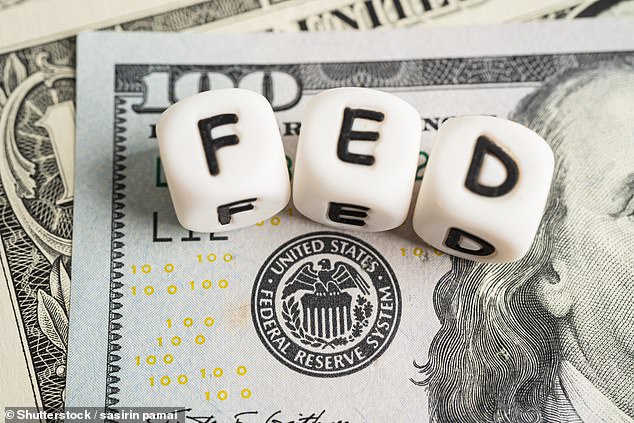[ad_1]
This week the US Federal Reserve is almost certain to cut interest rates. The Bank of England, by contrast, is almost certain to hold them. Why? To be sure, inflation in the US is a bit lower than ours, but their government deficit and their national debt as a proportion of GDP are both higher. And their economy is growing, albeit slowly, whereas ours seems to have stalled. So what’s up?
There’s a simple explanation, which ties in with the fact that the UK Government has to borrow at a higher rate of interest, not just than the US, but every other major developed country.
That’s because neither our Government, nor our central bank, nor indeed our currency, is much trusted by the global investment community. So we have to pay more to borrow: sterling interest rates are higher than dollar or euro rates. It may seem a bit humiliating that the yield on our ten-year government debt should be around 4.7 per cent while that on the same debt of the Greek government is 3.4 per cent. But we have to live with the judgments of the markets, whether we like them or not.
But behind this explanation is a deeper question. It is whether trust in all central banks, including and especially the Federal Reserve, is going to weaken in the months ahead.
After all, gold is at an all-time high, not only in nominal terms at around $3,650 an ounce, but in real terms too. Adjust for inflation and it is higher now than its previous peak in 1980, which would be around $3,590 in today’s money. That was during the huge surge in inflation that was eventually stopped when the Fed, with its great chairman Paul Volcker, increased interest rates to 20 per cent in May 1981.
We are not facing an inflation catastrophe on that scale now, but we are looking as though price increases across the developed world may settle quite a bit higher than the 2 per cent target of the main central banks.

On the money: The US Federal Reserve is almost certain to cut interest rates
For what it is worth, the latest Bank of England survey of inflation expectations for five years’ time is 3.8 per cent. From a global perspective, what the UK does is neither here nor there, but it very much matters what the Fed does – and that brings us to the current challenge to its independence by a noted visitor to our shores this coming week, Donald Trump.
You do not need to be a close follower of his attacks on the Fed to know that he has launched a stream of insults at its chairman, Jerome Powell, and tried to get one of its governors, Lisa Cook, fired. We will see who he appoints to succeed Powell when his term ends in May, but it is pretty clear that the Fed will lean towards cheaper money for the next couple of years. I am not suggesting that it will allow inflation to let rip – just that at the margins it will cut rates rather than hold them, and hesitate to increase them in the face of resurgent price rises.
The markets know all this. Yet, and this is telling, they so far seem to be going along with it. It is terrible for any President to say that the Fed chairman is useless or to try to dismiss a governor, but there has not been a sudden run on the dollar or a violent surge in US borrowing costs. The Fed’s independence may be under threat, but for the moment the markets seem to think it will be robust enough to withstand the pressure.
Let’s hope that is right. It matters to us here because our borrowing costs track those of the US. If the cost of borrowing for the American government climbs, ours will go up too. So we are very dependent on what happens at the Fed, all the more so because we have to pay a premium to borrow in sterling.
This is not just an issue for the Chancellor, Rachel Reeves, in framing her next Budget; it is a real concern for anyone in the UK trying to get a mortgage or finance a business investment.
The Fed isn’t perfect. Indeed, its reputation for control is probably lower than that of the European Central Bank. But let’s hope that it can hold its nerve, because if it doesn’t, we are all in big trouble.
DIY INVESTING PLATFORMS

AJ Bell

AJ Bell
Easy investing and ready-made portfolios

Hargreaves Lansdown

Hargreaves Lansdown
Free fund dealing and investment ideas

interactive investor

interactive investor
Flat-fee investing from £4.99 per month

InvestEngine

InvestEngine
Account and trading fee-free ETF investing
Trading 212
Trading 212
Free share dealing and no account fee
Affiliate links: If you take out a product This is Money may earn a commission. These deals are chosen by our editorial team, as we think they are worth highlighting. This does not affect our editorial independence.
[ad_2]
This article was originally published by a www.dailymail.co.uk . Read the Original article here. .

